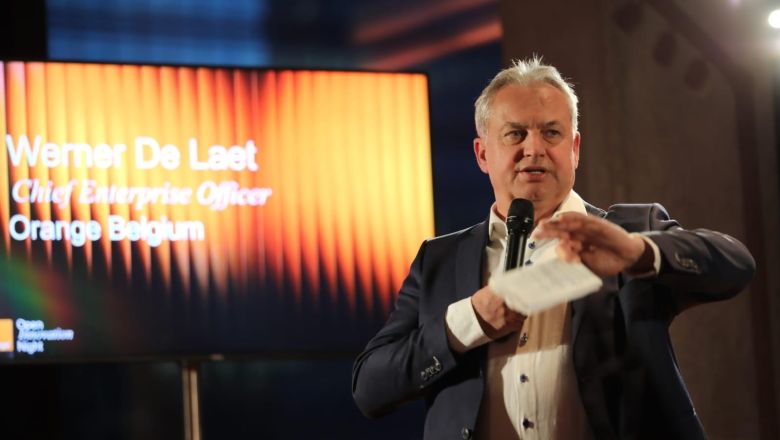In a bid to boost 5G use in Belgium and cover more and more of the population with 5G technology in 2023 and almost the entirety by 2025, Orange Belgium is steadily paving the way, providing new opportunities to businesses and consumers alike. Working closely with industry partners, the telecom operator is also supporting the implementation of several government funded 5G-standalone technology use cases.
1 million customers equipped with a 5G device
With a commitment to customer experience excellence, Orange Belgium has built enduring relationships with its customers, earning their trust and loyalty. The increased usage of mobile data services in all aspects of people’s lives has led to increased customer expectations as they are used to benefit from an outstanding network quality. The operator is therefore constantly investing in its state-of-the art network and is very proud to see its 5G customer base evolving.
Indeed, Orange Belgium’s 5G equipped customer base has now reached more than 1 million clients (B2C + B2B), meaning that 1 in 3 Orange customers owns a 5G-compatible device. This includes devices such as smartphones, tablets, modem modules, connected objects, dongles, datacards, USB modems, etc. that are compatible with and can support 5G frequencies.
More cities covered by 5G, including the capital
Orange Belgium aims to have 1,200 sites equipped with 5G by end of 2023 combining several frequencies to ensure the best possible experience at customers’ premises. In the coming months, more and more urbanized zones will start to see 5G coverage*. With the adaptation of emission norms also enabling the roll-out of 5G in Brussels, Orange Belgium is currently submitting its environmental permit applications to the Brussels Environment authorities. Once the permits are granted, the operator will be able to start deployment of 5G on its various antennas in the capital. 5G frequencies will initially be available at defined high-traffic locations, such as railway stations. The majority of 5G deployment in Brussels is scheduled for 2024, with some additional last rollouts in 2025.
5G makes event livestreaming more sustainable
When Orange opened its second Belgian 5G Lab at La Grand Poste innovation hub in Liège in November 2022, the telecoms operator immediately understood that 5G was a game changer for Liège-based broadcasting company EVS. Both companies collaborated to see how 5G could be used to stream events to a remote production team.
“4G is sufficient for when we are not livestreaming, but for live productions, our customers need 5G’s high bandwidth and low latency to control, produce and broadcast different video feeds wirelessly”, explains EVS Chief Marketing Officer Nicolas Bourdon.
The project, called Flex Production aims to explore how 5G infrastructure can contribute to live event streaming. The project is run in collaboration with the Théâtre de Liège, which uses Ultra HD cameras and 5G to send video streams to a control room at La Grand Poste. The production team there processes the footage, edits the programme and broadcasts it live to nearly 10,000 students in Wallonia and Brussels.
Thanks to 5G, EVS no longer needs to send an entire production team to an event. This reduces the travel expenses and carbon emissions. The company is currently completing its production control room and is planning to start testing this summer. The project will go live in October. In time, EVS aims to apply the concept in other locations too and it wants to collaborate with more educational institutions.
5G makes unmanned inland navigation possible
Seafar is a Belgian ship management company that helps shipping companies and ship owners to deploy unmanned vessels and ships with reduced crews. The company has a control centre in Antwerp, where its operators control the vessels remotely. The container ships that Seafar controls remotely are equipped with cameras, which currently send their footage to the control centre via 4G which allows them to reduce the environmental footprint of shipping.
Thanks to the wider bandwidth of the 5G SA network provided by Orange Belgium in the port of Antwerp, Seafar will be able to deploy 360° cameras with high image quality that give the captain in the control centre a virtual reality experience through a VR headset which improves situational awareness. The low latency of 5G also enables ships to respond more quickly and easily to the captain's commands from a distance, even at 100 km away in a completely different part of the country. Finally, the slicing of Orange Belgium’s 5G network means that the ship has its own network highway and does not have to communicate on saturated 4G frequencies, for example.
“We really see this project as a game changer”, says Ghazaleh Kia, R&D Project Manager at Seafar. “Thanks to 5G, we can have even more unmanned inland shipping vessels, which will cut costs, make the use of the vessels more efficient and reduce carbon emissions.”
5G as a catalyst for industrial drone inspections
SkyeBase was established in 2020 with the aim of carrying out faster, more efficient and better inspections of industrial sites, tank terminals, container terminals and infrastructure thanks to the use of drones for robotic inspections.
Although the Antwerp scale-up automates its drone and robotic inspections, the process still involves many manual tasks. For instance, an operator flies a drone around a silo to take pictures. When the drone lands, the inspector removes the SD card from the drone and checks the footage on a desktop or laptop. If the report turns out to be incomplete, the drone operator must return to the location. Through discussions with Orange Belgium, SkyeBase quickly realised that thanks to 5G standalone, a drone can forward footage instantly.
Next to working on a proof of concept of industrial drone inspections using 5G, another aim of the collaboration is to simplify remote communication with experts, Tom Daniëls, co-founder and CIO of SkyeBase, explains: “Experts cannot always be on site, but a live stream allows them to follow an inspection from a distance and share their knowledge in a secure manner. The 5G standalone network ensures a guaranteed bandwidth, which is crucial for connection reliability. We inspect critical infrastructure in the port and the petrochemical industry, amongst other locations. It is therefore crucial that the expert receives real-time footage, especially when an incident occurs.”
* Cities where start of 5G activation is foreseen until end of 2023: Aalst, Aarschot, Asse, Ath, Beveren-Waas, Binche, Boom-Willebroek, Deinze, Dendermonde, Dour, Duffel, Hasselt, Heist-op-den-Berg, Liège, Lier, Lokeren, Londerzeel, Mechelen, Namur, Ninove, Nivelles, Péruwelz, Ronse, Sambreville, Thuin, Tournai, Waterloo, Zele.



